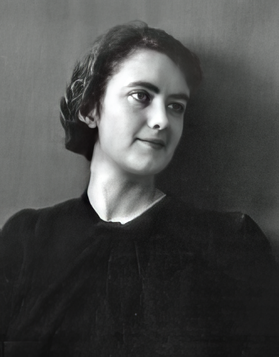Christopher Nolan’s ‘Oppenheimer‘ chronicles the life of J. Robert Oppenheimer, who earned the title of “the father of the atomic bomb” following his contribution to the Manhattan Project. The film focuses on Oppenheimer’s personal and professional life, giving us an insight into the turbulent times during his work on the development of the atomic bomb. The pressure of creating something that could have potentially destroyed the world is enough to take its toll on anyone, and we see Oppenheimer go through it while dealing with his complicated relationships, which include Jean Tatlock, played by Florence Pugh. If you want to know more about her, we’ve got you covered. SPOILERS AHEAD!
Who was Jean Tatlock?
Born in 1914, Jean Tatlock was a psychiatrist who met Robert Oppenheimer when she was 22 and a student at Stanford Medical School, one of the few women to do so in her time. Known for her sharp intellect and good looks, Tatlock was a formidable figure and considered a rising star in her field. However, she also suffered from severe bouts of depression, and her mental health remained a cause for concern for her loved ones.

Tatlock and Oppenheimer’s romance started in 1936. Despite their ten-year age gap, they developed a close relationship that survived even after they’d broken up and Oppenheimer was married to someone else. Oppenheimer is believed to have named the first nuclear weapon test “Trinity” after one of John Donne’s poems, which was introduced to him by Tatlock. Reportedly, they came close enough to getting engaged twice, but Tatlock rejected his proposal both times. Later, Oppenheimer revealed that their meetings had become highly rare by 1939. He married Kitty one year later.
By 1943, Tatlock had made a name for herself and worked as a psychiatrist at Mount Zion Hospital in San Francisco. Around the same time, Oppenheimer was employed as the director of the Los Alamos Laboratory and got involved in the Manhattan Project. His work required him not to talk about it with anyone. Reportedly, this caused a great distance between the two, leaving Tatlock feeling stranded when she was going through another bout of depression. She is also said to have struggled with her sexuality, which would have confused her more, as psychoanalysis at that time saw homosexuality as a form of mental disorder.
Another thing that made Tatlock a person of interest was her ties with the Communist Party. Reportedly, she was under surveillance by the FBI, especially after Oppenheimer was put in charge of the top-secret Manhattan Project. She was said to have been a paying member of the party and wrote for its publications. The association with her later brought Oppenheimer under fire during a security hearing about his possible ties with the Communist Party.
Mental Health Struggles Lead to Jean Tatlock’s Death

Jean Tatlock died by suicide on January 4, 1944, in her apartment in San Francisco. She was 29 years old. She was discovered by her father, who broke into the house through the window when she didn’t respond to the doorbell. Reportedly, she was found with her head submerged in the partly-filled bathtub. A suicide note was found on her dining table. Per the coroner’s report, she’d had a full meal on her last night and took some barbiturates. Traces of chloral hydrate were found in her blood. Tatlock’s remains are set to have been buried in the family plot in Albany County, New York.
Her suicide is said to have been triggered by her declining mental health. However, several conspiracy theories have emerged about her death over the years. With her under the surveillance of the FBI, some theorize that her death might have been a murder. The fact that her father is said to have burned some of her letters and photographs before he called anyone about her death is seen as suspicious by some. However, no proof has emerged in the years since to indicate foul play in her death. Her close family and friends, too, believed that her depression was the reason behind her suicide. As for Oppenheimer, he is said to have been devastated by the death of the woman who is said to have been his “truest love.”
Read More: Movies Like Oppenheimer


You must be logged in to post a comment.